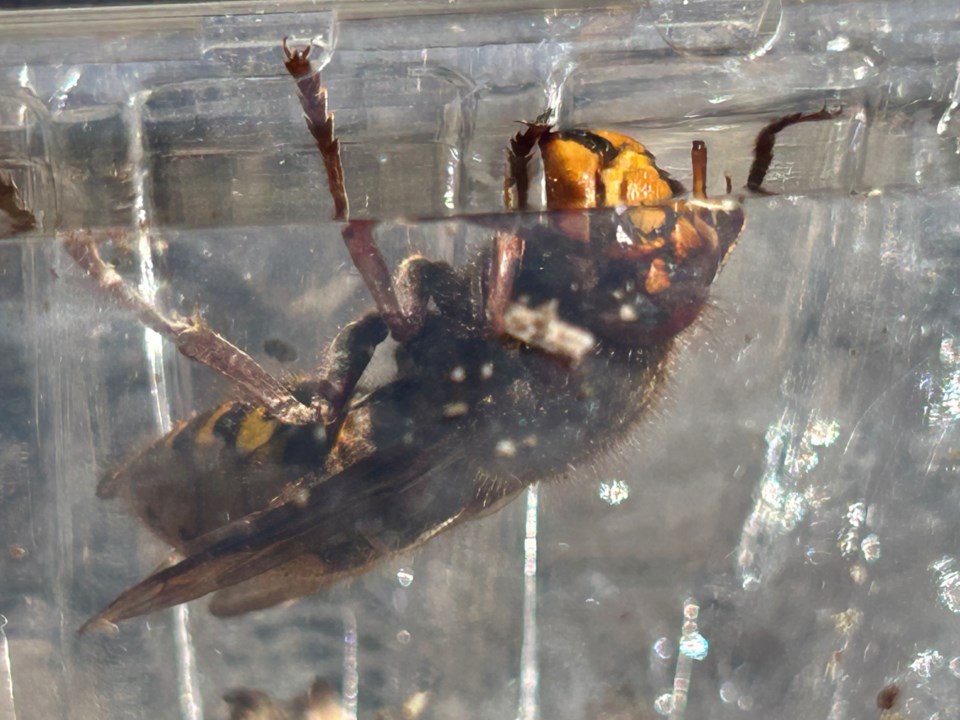Insect experts are blaming climate change for the recent sightings of large hornets in North Bay and other portions of northern Ontario.
Some area residents have been shocked to see the large hornets which have led many to worry that they are the Northern giant hornets sometimes known as "murder hornets," that made headlines after invading parts of the Canadian and American west coast several years ago.
See related: European hornets mistaken for Murder hornets in North Bay
Darcy Brydge found a nest in a tree in his backyard on the north end of North Bay.
He caught one of the large hornets which was so large he thought it was a small hummingbird.
"A regular hornet is probably half this size," said Brydge.
Even pest control operators like Tom Richardson from Good Riddance Pest Control in North Bay say they have been fielding many calls about larger-than-normal hornet sightings in the North Bay area.
"We are unsure as to why, but yes European hornets are here," Richardson told BayToday.
"Yes, I have seen lots of online pictures and chatter. We have had some calls and brought back some examples. They were around at the end of last season as well."
David Dutkiewicz, an entomology technician at the Invasive Species Centre based in Sault Ste. Marie, confirms that the sightings in northern Ontario are the European hornet.
"Territory expansion is related to climate change, as we are seeing this happening with many species of insects in Canada and the US," said Dutkeiwicz.
"The warmer winters allow for less mortality of insect species. Additionally, another potential reason why the European hornet might be expanding more rapidly is because of human-assisted movement.
"Wasps and bees will be kicked out of the hive to overwinter, they can hide in fabrics, wood, landscape material, outdoor furniture. this material is a prime way for humans to assist in the movement of these hornets. When transporting from homes to cottages or moving to new locations it is important to inspect anything you are moving over 100 kilometres for any hitchhikers."
Dutkiewicz, who has been working at the Invasive Species Centre since 2016, says there is a big difference between the northern giant Hornet and the European giant Hornet.
"So the European giant Hornet has actually been in the area in Canada since 1930s and has actually been in North America since 1840 so the European version is sort of expanding its territory after the last number of years, and now can be found in more places," he noted.
He says the majority of European Hornet sightings in Ontario are in the Hamilton and Ottawa areas.
"The last number of years, we've started to notice several new reports being found, as far north as Temiskaming Shores and a couple of reports in Sudbury and even as far west as Wawa."
The good news is despite the European hornet's size, it is not nearly as aggressive as its even larger cousin, the Northern giant hornet.
"It's more looking for food items, things with high sugar content, maybe some protein as well," he explains.
"They love barbecue sauces and things like that, because, you know, they're usually on some sort of meat, or they are sweet smelling and those kinds of things.
"So I always say to people, if you have those kinds of things around your house and you're not cleaning it up properly, you might have some European hornets around you the next day, or even at nighttime."
